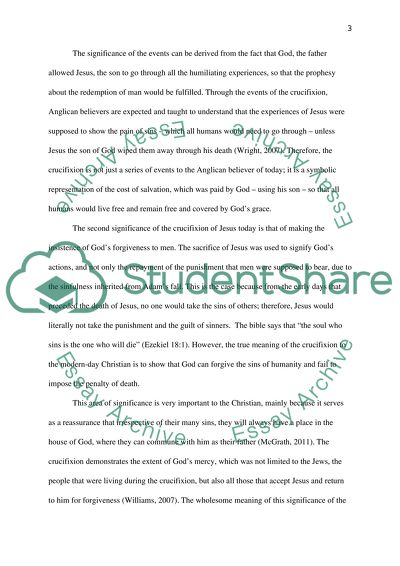Cite this document
(“The significance of the crucifixion to Anglicans today Essay”, n.d.)
Retrieved from https://studentshare.org/religion-and-theology/1494669-what-is-the-significance-of-the-crucifixion-to
Retrieved from https://studentshare.org/religion-and-theology/1494669-what-is-the-significance-of-the-crucifixion-to
(The Significance of the Crucifixion to Anglicans Today Essay)
https://studentshare.org/religion-and-theology/1494669-what-is-the-significance-of-the-crucifixion-to.
https://studentshare.org/religion-and-theology/1494669-what-is-the-significance-of-the-crucifixion-to.
“The Significance of the Crucifixion to Anglicans Today Essay”, n.d. https://studentshare.org/religion-and-theology/1494669-what-is-the-significance-of-the-crucifixion-to.


